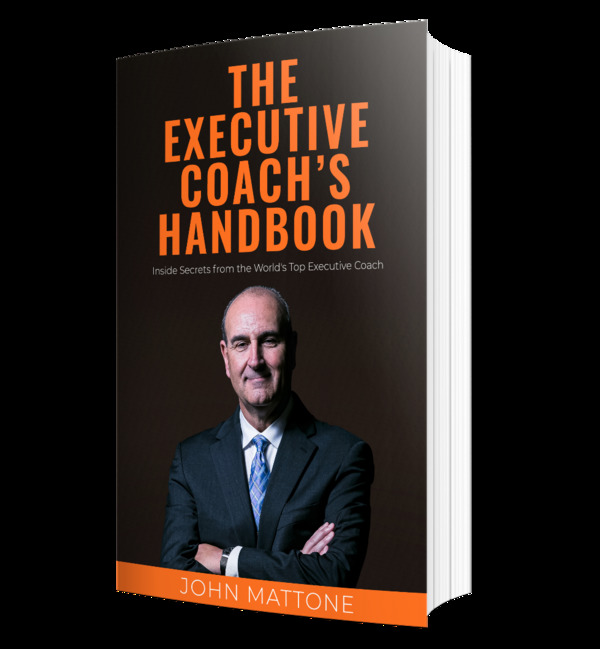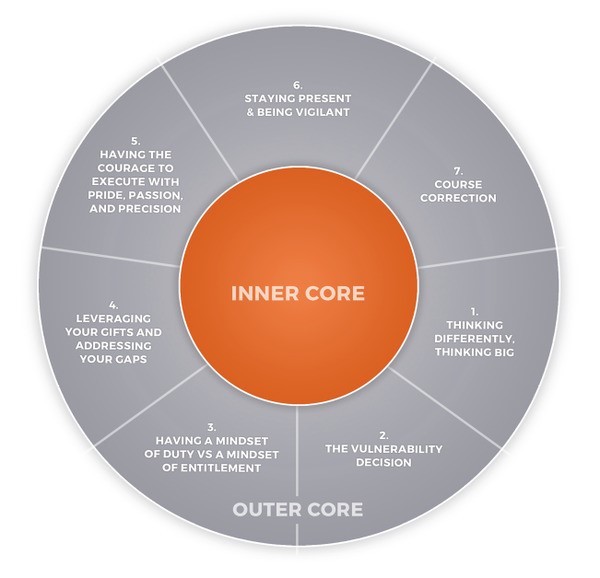THE WORLD’S #1 EXECUTIVE COACHING AND BUSINESS COACHING BLOG SINCE 2017.
“The Executive Coach’s Handbook” Now Available on Amazon
August 15, 2022 | Category: Blog, Executive Coaching | Last updated on: March 12, 2025

Hello, everyone!
I hope you and your families are well!
I’m very excited to announce that my new book The Executive Coach’s Handbook is now available on Amazon!
I’m so pleased we have already achieved #1 best-seller status in multiple Amazon categories (coaching and mentoring, leadership, management, strategy, etc.)
This book is both a “thank you” to the many people who have believed in me and my work and who have helped me and our growing companies along the way, as well as an expression of deep honor and appreciation I have for coaches all over the world who are making the world better. I have learned so much from you! As my way to thank you for the gifts you’ve given me, it’s my greatest wish that The Executive Coach’s Handbook helps you become a better coach and person.
What Does it Take to be a Successful Executive Coach?
An all-too-common scenario in the world of executive coaching is the successful executive who leaves their employment let’s say when they are in their 50’s or 60’s, and while they know a lot about leadership and mentoring and may have enjoyed coaching younger talent, they immediately believe they will be successful as an executive coach. They invest in getting certified, hang their “shingle,” and they are off and running, or so they think! Similarly, I know and have worked with many outstanding executive coaches who excel at their craft. These are talented coaches who frankly struggle to make the impact they are capable of or earn the income they deserve.
In the former case, the ex-executive wakes up one morning and realizes they no longer have a paycheck and panic sets in. They realize that while they love to coach, they may not be entrepreneurially inclined, and they have no idea how to identify or go after business coaching opportunities. They struggle, falter, and fail. In the latter case, I’ve seen many executive coaches who despite their gifts and talents, are simply unable to support themselves and their families and are forced to find a job. What a tragedy!
In either case, the ex-executive or talented coach may have amassed outstanding knowledge about how to help people be better leaders, but they have no idea how to deliver it to those in need.
The Executive Coach’s Handbook is about helping you launch, build, and sustain a successful career as an executive coach.
My new book is a blend of philosophical and practical advice exploring diverse aspects of the coaching process, from pitching yourself as a coach to differentiating your services in a competitive market and successfully unlocking the leadership potential of your clients.
The purpose of the book is to educate, inspire, and empower new and experienced coaches to be better and more successful at what they do.
The Executive Coach’s Handbook is now available on Amazon!
I Am NOT a Stranger to Failure
I launched my first leadership-focused business at 30, and by the time I was 40, the business failed. It wasn’t an executive coaching business as much a speaking business involving me delivering leadership speeches and training programs all over the world. I found it a struggle to put enough energy into the effort as my wife Gayle and I were raising four kids. At 37, I published my second book, Success Yourself, which failed miserably. Soon thereafter, the business went bankrupt, and we were out of money. I found myself back in the corporate world at 40 and stayed until 55 when I had a calling to do what I do today. I learned a lot and grew tremendously in those years, which has fueled much of my success today.
In retrospect, not seeing or embracing myself as a real entrepreneur was my biggest handicap to achieving breakthrough success in those years. It took me a while to overcome this weakness.
LAW #5 of Intelligent Leadership: The key to unlocking your massive potential is making the decision to be vulnerable—John Mattone
The Executive Coach’s Handbook Reveals “My Secrets”
To me, the biggest skill gap in the world of executive coaching are coaches who struggle to find the opportunities they can fulfill. Coaches must also develop resilient personalities that allow them to handle rejection and lose deals.
The Executive Coach’s Handbook pulls back the curtains on what I think makes executive coaching success possible. In it, I share some of the secrets I consider essential to not only uncovering and closing lucrative assignments, but also for making a big impact on your clients. Inevitably, when you do impactful work, you get rewarded (expansion of contracts, more referrals, greater earnings, etc.)
If you don’t measure your impact as a coach, there’s a good chance you’ll lose a fair share of deals. Most executive coaches don’t measure their impact and wonder why they’re not winning deals. For me and the coaches I certify as part of our Intelligent Leadership Certification programs, measuring your impact as a coach and proving to your prospects that the work you do will drive better results is non-negotiable. I talk about this in the book.
Another coaching secret I talk about is recognizing that a leader’s inner-core (their self-image, thoughts, character, etc.) drives their outer-core. The absolute key as a coach is to help a leader better understand their inner-core; where they are both strong and weak without making the mistake of going too far or deep (yes, the guardrails are important) and then help them translate what they learn about their inner-core into driving greatness in the outer-core.
The Executive Coach’s Handbook is now available on Amazon!
The inner core is the source of leadership greatness.
Another one of my secrets is recognizing that most clients crave a coach-student relationship that is a true partnership where the coaching journey is about co-discovery, co-execution, and co-creation of a masterpiece that helps the leader become better at work and at home. There are too many coaches who become overly enamored with their assessment certifications and are too quick to take on an “I know more than you” attitude. To me, great executive coaches are like the best medical doctors in that they do accurate diagnostic work, but unlike medical doctors, the best executive coaches almost never prescribe. The prescription around helping your client create their compelling future must always be co-created.
LAW #40 of Intelligent Leadership: Executive coaching is one of the most powerful and effective ways to unleash leadership potential and improve performance—John Mattone
It Feels Great to Give Back!
By unveiling my recipe for executive coaching success, I’m looking to give back to the coaches who make the world a better place through the outstanding work they do.
I’m honored and humbled to have received gracious endorsements from many of the world’s top leadership coaches and thought leaders. You will see all of these in the first few pages of the book, but here are a couple:
“John Mattone understands that truly great leadership always starts on the inside. More than that, John is a master of helping people discover and cultivate their innate leadership potential through advice that is both practical and profound.” —Deepak Chopra, Author of “You Are the Universe”
“I can’t wait to hold your book in my hands and share it with the coaches I speak to all over the world. It is an amazing gift for our community.” – Marcia Reynolds, PsyD, globally recognized leadership coach and author of the international best-sellers “Coach the Person, Not the Problem” and “The Discomfort Zone.”
The Executive Coach’s Handbook is now available on Amazon!




